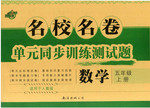题目内容
_______it took 200 years to move from the steam engine to the Internet, there could be major development in _______ are now considered frontiers(尖端) of science in just the past few ten years.
A. When, which B. While, which
C. While, what D. When, that
 名师导航单元期末冲刺100分系列答案
名师导航单元期末冲刺100分系列答案 名校名卷单元同步训练测试题系列答案
名校名卷单元同步训练测试题系列答案AT
Revolutionary TV Ears

TV Ears has helped thousands of people with various degrees of hearing loss hear the television clearly without turning up the volume and now it’s better and more affordable than ever! With TV Ears wireless technology, you set your own headset volume, while other TV listeners hear the television at a volume level that’s comfortable for them. You can even listen through the headset only and put the TV on mute(静音) if the situation calls for a quiet environment — maybe the baby is sleeping. Or perhaps you are the only one who is interested in listening to the ballgame.
TV Ears patented technology includes a revolutionary noise reduction car tip, not used in any other commercially available headset. This tip reduces outside noise so that television dialogue is clear and understandable. Get the technology that has proven to help the most demanding customers. That’s why TV Ears has earned the trust and confidence of audiologists(听觉学家) nationwide as well as world-famous doctors.
Doctor Recommended TV Ears! “My wife and I have used TV Ears almost daily for the past two years and find them a great help in our enjoyment of television. As a retired ear doctor, I heartily recommend TV Ears to people with normal hearing as well as those with hearing loss.”
|
Customer Recommended TV Ears! “Now my husband can have the volume as loud as he needs and I can have the TV at my hearing level. TV Ears is so comfortable that Jack forgets he has them on! He can once again hear and understand the dialogue.” — Darlene & Jack B, CA |
Risk Free Trial!TV Ears comes with a30-dayrisk free trial.
Special Offer — Now$59.95.
If you’re not satisfied, return it.
Money-back guarantee!
Call now! 800-123-7832
1. TV Ears helps you ______.
A. improve your sleeping quality
B. change TV channels without difficulty
C. listen to TV without disturbing others
D. become interested in ballgame programs
2.What makes TV Ears different from other headsets?
A. It can easily set TV on mute.
B. Its head set volume is adjustable.
set volume is adjustable.
C. It applies special wireless technology.
D. It has a new noise reduction ear tip
3.This advertisement is made more believable by ______.
A. offering reasons for this invention
B. using recommendations
C. providing statistics
D. showing the results of experiments


 — Robert Forbes, M. D. , CA
— Robert Forbes, M. D. , CA